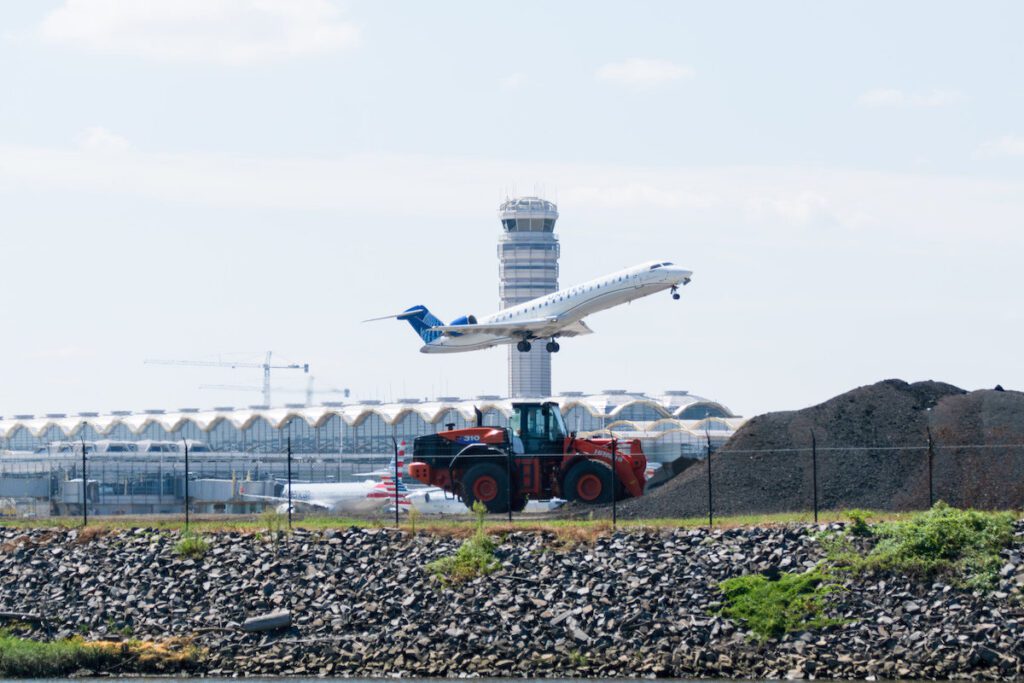
Skift Take
After much debate on certain policies, the FAA Reauthorization Bill passed Congress on Tuesday, extending the federal agency’s authority for the next five years.
The House of Representatives overwhelmingly passed the Federal Aviation Administration Reauthorization Bill, which will now codify automatic refunds and guaranteed family seating into U.S. law.
The bill passed 387 to 26 on Wednesday and renews the FAA’s authority for the next five years, and it will now go to President Joe Biden’s desk.
Typically, the FAA bill is able to pass without too much debate. But with issues ranging from outdated technology to the use of biometrics in airports, the bill was held up in Congress for over a year.
Here’s what made it into the final version of the bill:
More Flights at DCA
One of the biggest issues that caused the FAA bill to stall was a provision to add more long-distance flights to Ronald Reagan Washington National Airport. The space-constrained airport already limits flights to those within a 1,250-mile radius of the airport.
Forty flights are exempt from this rule, but some senators wanted to increase that number, arguing that it could give consumers more choices.
Washington, D.C.-area senators were heavily opposed to the provision. However, the provision adding five more long-distance flights from DCA made it to the final version of the bill.
Some senators, like Ted Cruz, the ranking member of the Senate Commerce Committee, was in favor of increasing the number of long-distance flights at DCA. While others, like Senator Joe Manchin, expressed “concern” over changing the perimeter rule.
Delta Air Lines and Spirit Airlines also advocated for increasing the DCA perimeter rule, while American Airlines, Alaska Airlines and United Airlines were against the change.
More Consumer Protections
The bill codifies the Department of Transportation’s automatic refunds rule, which was met with some pushback from the airline industry. Passengers will not need to make requests for refunds if their flights are significantly delayed or canceled. Travelers can only receive automatic refunds if they don’t accept an alternative flight option or if they don’t respond to a request for one.
A previous version of the FAA bill stated passengers would need to make a written or electronic request for a refund, which made it unclear if the DOT would be able to enforce the rule.
Senators Josh Hawley and Elizabeth Warren proposed an amendment to include automatic refunds, which gained bipartisan support in the Senate.
“Statutory rights to refunds are a big win for consumers in this bill. Passengers can reject vouchers or alternative flights, and without hassle, get a refund,” Senator Maria Cantwell, the chair of the Senate Commerce Committee, said May 7.
The bill also sets standards for airline travel credits, mandating that they cannot expire for at least five years, and also requires airlines to guarantee family seating without extra fees.
Biometrics Continue
Some senators were pushing to restrict the use of facial recognition at airports, arguing that it raises privacy concerns.
However, an amendment from Senators Jeff Merkley and John Kennedy failed to make it into the final bill. The U.S. Travel Association heavily opposed the amendment, expressing concern that it would result in longer wait times at airports and weaken security.
“We do see this as a very dangerous bill that would undermine aviation security, delay millions of flyers, and set TSA passenger screening back decades,” Tori Barnes, the U.S. Travel Association’s executive vice president of public affairs and policy, told Skift May 2. “Frankly, biometrics is the future of air travel screening.”
The Transportation Security Administration plans to roll out biometric technology at hundreds of airports in the next few years.
Addressing the Air-Traffic Controller Shortage
Since the pandemic, an air-traffic controller shortage has resulted in flight reductions, delays and cancellations. The shortage can be especially felt in the New York and D.C. areas, where the FAA has implemented slot waivers. Even with the slot waivers, there have still been numerous flight delays and cancellations at airports in those heavily congested areas.
The FAA previously said it’s short of 3,000 air-traffic controllers nationally and that the shortage could last well into the 2030s. The bill includes provisions to set minimum hiring targets for air-traffic controllers and to conduct a study into how many air traffic controllers are needed for each tower. Additionally, the bill also increases the access of advanced air-traffic control simulator training.
